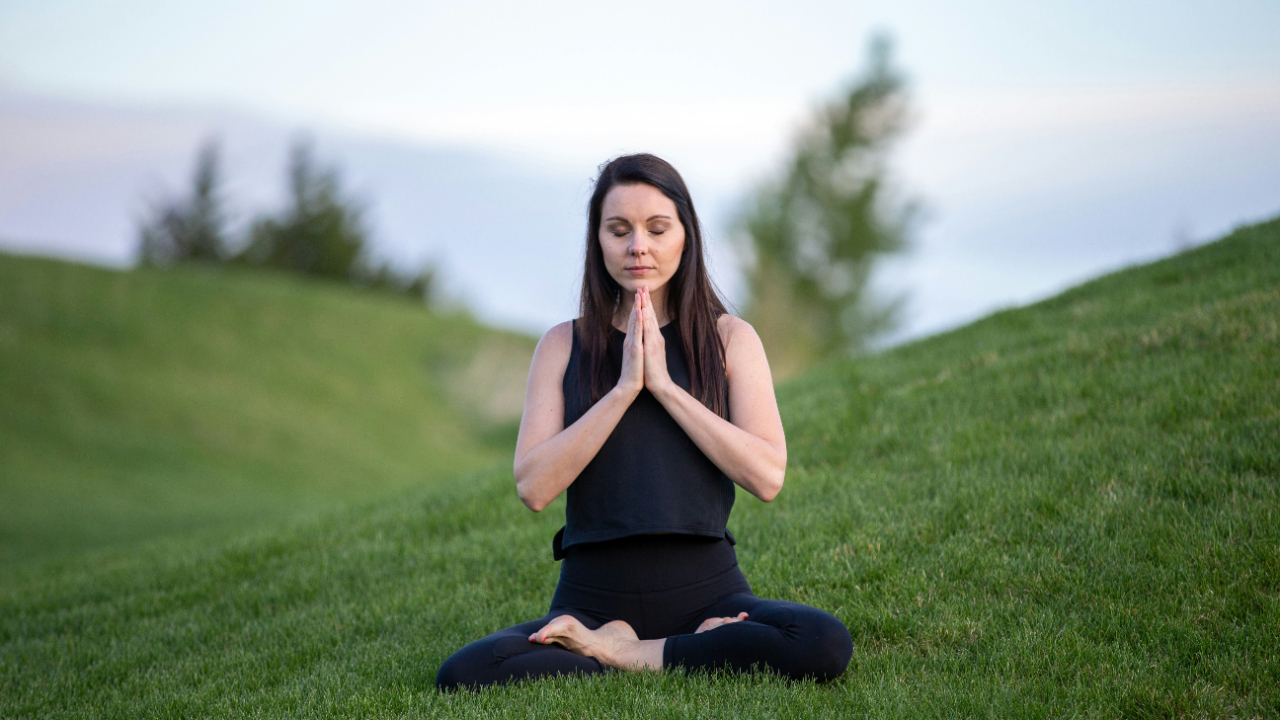Ayurveda for Athletes: Enhancing Performance and Recovery Naturally
Nov 04, 2024
Ayurveda for Athletes: Enhancing Performance and Recovery Naturally
Athletes often seek ways to boost their performance, maintain stamina, and recover quickly after intense physical activity. While modern sports science provides valuable insights into training and recovery, Ayurveda, the ancient Indian system of holistic health, offers time-tested wisdom to naturally enhance athletic performance and aid in recovery.
Ayurveda views each person as a unique combination of the three doshas—Vata, Pitta, and Kapha—which influence physical, mental, and emotional traits. By balancing these doshas, Ayurveda can help athletes optimize their energy levels, improve endurance, prevent injuries, and recover faster. This blog will explore how Ayurveda can support athletes in enhancing performance and promoting recovery through diet, herbal remedies, daily routines, and recovery techniques.
1. Understanding Your Dosha as an Athlete
In Ayurveda, understanding your dominant dosha is essential for optimizing athletic performance and recovery. Each dosha influences different aspects of physical and mental health:
-
Vata Dosha: Associated with movement, flexibility, and creativity. Vata-dominant athletes are often quick, agile, and energetic, but may struggle with endurance and are prone to injuries and fatigue when out of balance.
-
Pitta Dosha: Governs heat, metabolism, and intensity. Pitta-dominant athletes tend to be competitive, strong, and focused. However, excess Pitta can lead to overheating, inflammation, and burnout.
-
Kapha Dosha: Governs strength, stability, and endurance. Kapha-dominant athletes are naturally strong and have excellent stamina, but may struggle with motivation and weight management when imbalanced.
Balancing your dosha allows you to optimize training, avoid injuries, and improve recovery times. Let’s explore Ayurvedic practices tailored to each dosha.
2. Diet and Nutrition for Optimal Performance
Diet plays a critical role in an athlete’s ability to perform at their best. Ayurveda emphasizes eating according to your dosha to maintain energy, boost stamina, and enhance recovery. Eating fresh, whole, and easy-to-digest foods that support your digestion (Agni) is key for athletes.
Vata-Pacifying Diet for Energy and Endurance:
Vata-dominant athletes often need extra grounding and nourishment to sustain energy and avoid fatigue.
-
Focus on: Warm, cooked foods like soups, stews, root vegetables, bone broth, dairy, whole grains (like oats, rice, and quinoa), and healthy fats (ghee, avocados, nuts, and seeds), sweet and sour and juicy fruits
-
Avoid: Cold, raw, dry, light foods and excessive caffeine and cacao, which can dry, stimulate and deplete the delicate Vata constitution and cause restlessness, dryness, insomnia, pain and fatigue.
Hydration is especially important for Vata athletes, as they are prone to dryness. Drinking warm herbal teas like ginger or fennel throughout the day helps support hydration and digestion.
Pitta-Pacifying Diet for Cooling and Recovery:
Pitta athletes need to focus on cooling, anti-inflammatory foods to prevent overheating and inflammation from intense physical activity.
-
Focus on: Cooling foods such dairy, paneer, proteins, whole grains, veggies, leafy greens, sweet juicy fruits, and hydrating and electrolyte drinks like coconut water and our hydrating elixir which are excellent hydrating and cooling beverages for Pitta athletes.
-
Avoid: Spicy, fried, sour, acidic and excess salty foods (like ferments, soy sauce, kimchi, tomatoes, citrus), as these can aggravate Pitta and lead to overheating, burning sensations, inflammation, skin issues, sweating, anger, impatience and irritability.
Incorporating natural anti-inflammatory foods like dark green leafies, aloe vera gel, and cooling herbs such as coriander and cilantro can help Pitta athletes recover faster from inflammation and soreness.
Kapha-Pacifying Diet for Stamina and Lightness:
Kapha athletes need light and energizing foods to maintain stamina and prevent sluggishness.
-
Focus on: Light grains like millet and buckwheat, steamed vegetables, legumes, and spices such as ginger, turmeric, and black pepper to stimulate digestion and metabolism.
-
Avoid: Heavy, oily, or sugary foods that can weigh down Kapha and reduce energy levels.
Kapha athletes benefit from eating smaller, less frequent meals and avoiding heavy meals in general especially late at night to maintain energy and prevent fluid retention and weight gain.
3. Ayurvedic Herbs for Enhanced Performance and Recovery
Ayurveda offers a range of herbs, or Rasayanas, that support athletes by boosting rejuvenation of the bodily tissues, ojas and building mental fortitude and stamina. These herbs can be taken incorporated into meals and drinks.
Shatavari (Asparagus racemosus):
Great for Pitta and Vata people, shatavari is a rejuvenating herb known for its ability to boost energy, improve digestion, and reduce fatigue. It helps athletes maintain energy levels during long workouts and aids in post-exercise recovery.
-
How to Use: Shatavari can be taken as drops or transdermal cream or in small dosages without contraindications (such as ama, weight gain tendencies) as a powder or ghee 1/4 tsp into milk the week around the full moon each month.to support energy and endurance.
Ashwagandha (Withania somnifera):
Great for Vata people - ashwagandha is a powerful strength and tissue builder, and adaptogen that enhances physical endurance, reduces nervous system stress, and improves recovery, sleep and muscle tone. It helps athletes to manage the physical and mental stress of intense training while boosting muscle strength and stamina.
How to Use: Take as drops or transdermal cream or add 1/4 tsp ashwagandha powder to a cup of milk or bone broth and sip throughout the day or with a meal. NOTE: Ashwagandha is heating to the liver and so it is contraindicated for those with a hot liver.
Turmeric:
Great for Kapha people, turmeric is an anti-inflammatory herb that helps reduce joint pain, inflammation, and soreness after intense physical activity. It supports healthy circulation and detoxification, making it ideal for athletes recovering from injuries or muscle strain.
-
How to Use: avoid the latest trend of taking turmeric by itself as it is heating and drying to the liver and system. Best taken with a meal or in a cup of warm milk before bed. Dosage: no more than 1/4 tsp a day per person. Great to add to dhals, veggies, and grain dishes as well.
4. Pre- and Post-Workout Routines for Balance and Recovery
Ayurveda emphasizes the importance of daily routines, or Dinacharya, to help athletes maintain balance and prevent burnout. Pre- and post-workout routines that align with your dosha can enhance performance and recovery.
Pre-Workout Routine:
-
Vata Athletes: Begin your workout with gentle stretching and warm-up exercises to prevent injury. Warm oil massage (Abhyanga) with sesame oil before workouts can help prevent joint stiffness and support flexibility.
-
Pitta Athletes: Cooling pranayama exercises like Sheetali (Cooling Breath) before workouts can help Pitta athletes avoid overheating during intense exercise. Apply coconut oil to the body for a cooling effect before training.
-
Kapha Athletes: Engage in invigorating warm-ups, such as dynamic stretches or brisk walking, to get your circulation going. Try warming up with heating pranayama to get your prana moving, or dry brushing before exercise which can stimulate lymphatic flow and prevent sluggishness.
Post-Workout Routine:
-
Vata Athletes: Post-workout, prioritize rest and grounding activities. Warm oil massage with sesame oil can help soothe sore muscles and calm the nervous system. Hydrate with warm herbal teas, electrolyte drinks and be sure to consume nourishing foods.
-
Pitta Athletes: After exercise, focus on cooling down with stretching or restorative yoga poses. Hydrate with coconut water or aloe vera juice to prevent overheating and inflammation. A cold shower can also help cool down excess Pitta.
-
Kapha Athletes: After a workout, engage in gentle stretching and stay active to avoid post-exercise sluggishness. A light, energizing snack with spices like ginger or cinnamon can help Kapha athletes recover without feeling heavy.
5. Yoga and Pranayama for Athletes
In addition to strength training and cardiovascular exercise, yoga and pranayama are valuable tools for enhancing athletic performance and recovery. Yoga increases flexibility, improves balance, and promotes mental clarity, while pranayama helps optimize breathing and lung capacity.
Yoga for Athletes:
-
Vata: Gentle, grounding yoga poses such as Child’s Pose (Balasana) and Seated Forward Bend (Paschimottanasana) help calm Vata and improve flexibility.
-
Pitta: Cooling, restorative poses like Legs-Up-the-Wall (Viparita Karani) and Reclining Bound Angle Pose (Supta Baddha Konasana) help reduce excess heat and inflammation.
-
Kapha: Dynamic yoga sequences like Sun Salutations (Surya Namaskar) and Warrior Pose (Virabhadrasana) help stimulate Kapha energy and improve endurance.
Pranayama for Endurance:
-
Nadi Shodhana (Alternate Nostril Breathing): This balancing breathing technique improves lung capacity, calms the mind, and enhances focus. Can be used by all constitutions..
6. Rest and Recovery for Athletes
Rest is a critical component of athletic performance and recovery. Ayurveda emphasizes the importance of rest to allow the body to repair and recharge. Overexertion without adequate rest can lead to doshic imbalances and injury.
-
Prioritize Sleep: Ayurveda recommends 7-8 hours of restful sleep each night to support muscle recovery, mental clarity, and overall vitality.
-
Abhyanga (Self-Massage): Regular self-massage with warm oil helps reduce muscle soreness, improve circulation, and promote relaxation. Use sesame oil for Vata, coconut oil for Pitta, and mustard oil for Kapha.
-
Meditation for Mental Recovery: Regular meditation helps athletes reduce stress, improve focus, and promote emotional balance. A calm mind is essential for peak performance and recovery.
Conclusion: Embrace Ayurveda for Athletic Excellence
Ayurveda offers a holistic approach to enhancing athletic performance and supporting recovery through individualized diet, herbal remedies, daily routines, and restorative practices. By understanding your dosha and incorporating Ayurvedic principles into your training and recovery routine, you can boost your stamina, prevent injuries, and maintain balance in both body and mind. Embrace Ayurveda’s natural wisdom to enhance your athletic abilities, optimize recovery, and achieve long-lasting health and vitality as you pursue your fitness goals.
DID YOU ENJOY THIS ARTICLE? CHECK OUT: AYURVEDA EXERCISE FOR WINTER






